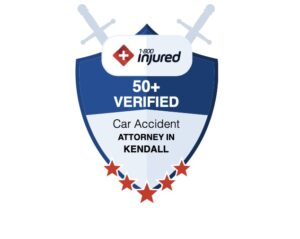Camp Lejeune Toxic Water Lawsuit
For decades, government officials were aware of toxic water contamination at U.S. Marine Corps Base Camp Lejeune in North Carolina, but those in power ignored the issue and denied victims their right to seek justice.
Between August 1953 and December 1987, service members and their families stationed at Camp Lejeune consumed and bathed in water that contained high levels of toxic chemicals. Many of these individuals have gone on to experience severe health issues because of the exposure.
If you served, lived, or worked at Camp Lejeune between August 1953 and December 1987 and/or had a claim for disability denied by Veterans Affairs, you may be entitled to compensation.
Find out now if you are owed a payout for Camp Lejeune water contamination and whether you can recover a potential settlement.
About the Camp Lejeune Water Contamination:
The Camp Lejeune Justice Act, is aimed at improving disability benefits for veterans exposed to toxins. This bill allows injured Marines and their families to finally be able to seek justice for exposure to toxic water at Camp Lejeune between August 1, 1953, and December 31, 1987.
During that time period, veterans, their spouses, their children, and even workers living off-base at Camp Lejeune, North Carolina, were unknowingly exposed to toxic chemicals that have been scientifically linked to serious health concerns.
The Camp Lejeune Justice Act finally recognizes that military families consumed contaminated drinking water for decades at Camp Lejeune. Runoff from storage tanks, treatment plants, and a nearby dry cleaner put trichloroethylene (TCE), perchloroethylene (PCE), benzene, and vinyl chloride into the camp’s water supply. All of these harmful chemicals are classified by federal agencies as causes of cancers and other deadly diseases.
Veterans and their families began filing suits against the U.S. government in 2005, alleging harm from exposure to contaminated drinking water. In 2016, all claims were dismissed. The court determined that such claims were barred by both federal and North Carolina law. Under the Feres doctrine, service members may not sue the U.S. government for injuries incurred “incident to military service.” Under the North Carolina statute of repose, a plaintiff is barred from bringing a suit more than 10 years after the contamination occurs.
Symptoms and Medical Conditions Caused by Camp Lejeune Water Contamination:
Camp Lejeune water contamination has been linked to the serious health issues of veterans and their families, including:
- Leukemia
- Aplastic Anemia and More Myelodysplastic Syndromes
- Birth Defects
- Bladder Cancer
- Esophageal Cancer
- Female Infertility
- Kidney Cancer
- Liver Cancer
- Lung Cancer
- Multiple Myeloma
- Non-Hodgkin’s Lymphoma
- Parkinson’s Disease
- Renal Failure (Permanent)
- Death
- Scleroderma
- Appendix Cancer
- Brain Cancer
- Bile Duct Cancer
- Colorectal Cancer
- Gallbladder Cancer
- Intestinal Cancer
- Pancreatic Cancer
- Prostate Cancer
- Sinus Cancer
- Soft Tissue Sarcoma
- Spinal Cancer
- Thyroid Cancer
- Breast Cancer
- Hepatic Steatosis (Fatty Liver Disease)
- Miscarriage
- Neurobehavioral Effects
Who Qualifies to File a Claim for Camp Lejeune Water Contamination?
To qualify for disability compensation, you must provide evidence for three things:
- A current disability
- An in-service injury or illness; and
- A link between the in-service injury or illness and the current disability.
Under the Veterans Affairs rules regarding Camp Lejeune water contamination, veterans with certain service experience do not need to prove an in-service injury or illness the same way they would for other claims — instead, the exposure to contaminated water is presumed if the veteran:
- Received a discharge under conditions other than dishonorable from active duty, reserve, or National Guard service; and
- Served at Camp Lejeune (or MCAS New River) for a total of at least 30 days between August 1, 1953, and December 31, 1987.
If you are uncertain if you qualify for compensation based on the above criteria, call My Florida Litigators for a free, no-obligation case evaluation to learn more about your claim.
Why Social Media Can Be Dangerous for Your Child

Adolescence has its many challenges, but unfortunately, these common growing pains are further exacerbated by stressors that arise from effects or pressures of social media. More specifically, the issues surrounding social media addiction and how it negatively impacts children and young adults as they develop. Multiple lawsuits have covered the underlying issues surrounding social media addiction and how mega-companies like Meta, the owners of Facebook and Instagram, have used their algorithms and A.I. to target and prey on the insecurities of vulnerable teens and young adults.
In 2021, Frances Haugen, a former Facebook employee and now whistleblower, testified before a U.S. Senate committee, accusing the company of ignoring the harm caused by its social platforms. Haugen went on record and told committee members, "Facebook knows that they are leading young users to anorexia content." Then again, on June 6, 2022, a lawsuit was filed against the social media company Meta known as Alexis, Kathleen, and Jeffrey Spence v. Meta Platforms, Inc., when 11-year-old Alexis Spence developed an eating disorder due to social media use. Unfortunately, Alexis isn't the only one suffering from the harmful effects of social media addiction. According to research in a spring 2020 slide presentation posted to Facebook's internal message board, "Thirty-two percent of girls under the age of 26 said that when they felt bad about their bodies, Instagram made them feel worse."
Exactech Knee and Ankle Replacement Recall
In February 2022, Exactech, a company that manufactures knee and ankle replacement devices, issued a recall for their Optetrak, Truliant, and Vantage products after reports from consumers that the plastic inserts are defective, causing an elevated risk of device failure and health complications. According to the recall, their products were stored in vacuum-sealed bags that allowed oxygen to diffuse into the devices and warp them during storage and before being implanted in a patient. The defect significantly increases the risk of future knee problems, and with over 147,000 knee implants performed since 2004, there are too many individuals who have undergone severe hardship because a negligent organization failed to ensure that their products were safe before arriving at consumers as the opposite.
Exactech has already stated they would issue refunds for any customer with a defective device, but this is merely a band-aid fix on the much larger issue. Those who had defective knee and ankle replacement devices implanted in them have much more to worry about, including their future health and medical bills, so a refund on their product will help very little in the grand scheme of things. Instead, these victims need an ally in their corner, someone who’s knowledgeable of the law and can help them hold the negligent party accountable for recklessly endangering their health and well-being.
Contact My Florida Litigators today for more information on how to get started.
Sunscreen Recall Lawsuit | Benzene Lawsuit

It’s a well-established scientific fact that sun exposure is linked to skin cancer. Sunscreen is a popular way to block the ultraviolet radiation associated with skin damage and protect against cancer. But evidence is emerging that certain types of sunscreen contain benzene, an industrial chemical that’s a known human carcinogen.
Dozens of sunscreen products recently tested positive for benzene—a chemical also found in gasoline and paint thinners—leading to demands for product recalls and questions about the safety of sunscreen chemicals. These new findings suggest that people who use sunscreen in an effort to avoid skin cancer may actually be increasing their risk of developing other types of cancers. Regular exposure to benzene, even at very low levels, is a major risk factor for blood tissue cancers such as leukemia, myeloma, and lymphoma.
If you used a sunscreen containing benzene, and have been diagnosed with cancer, you may be able to file a sunscreen cancer lawsuit. Call us today for a free consultation.
Contact Us
Client Reviews
Free Consultations
No Fees or Costs Unless we Win your Personal Injury Case!







